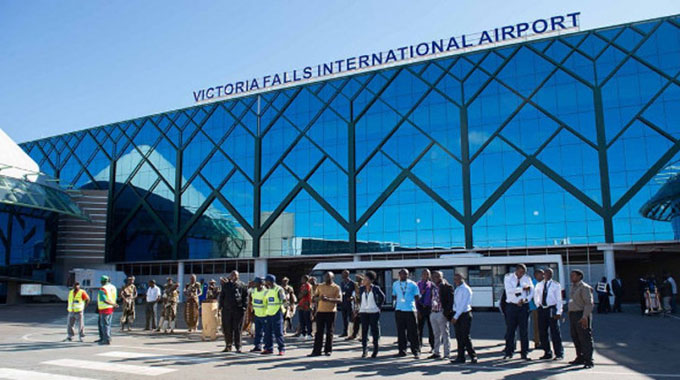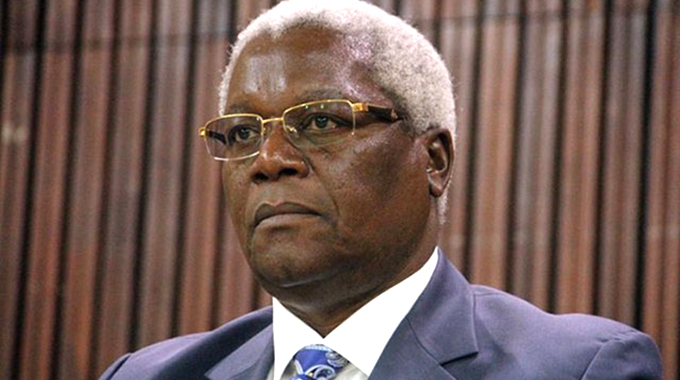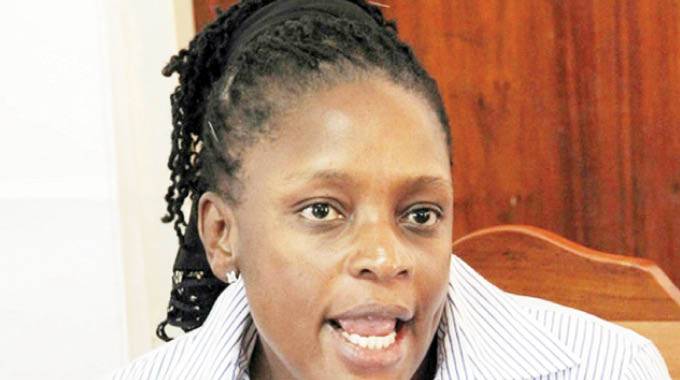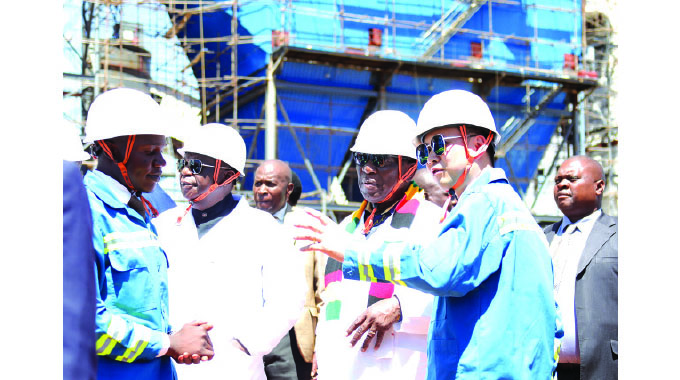Infrastructure development anchors SEZs investment drive

Lovemore Chikova
Development Dialogue
Infrastructure development being undertaken in various parts of the country complements well the establishment of special economic zones by the Zimbabwe Investment and Development Agency (ZIDA).
The projects being undertaken will complement the existing infrastructure that is already good enough for use by businesses.
The infrastructure that can help special economic zones flourish include both external and internal systems.
External infrastructure includes air, road and rail transport and communication systems outside the trading zones, while internal infrastructure involves the arrangement of the systems within the trading zones.
Investors in special economic zones may eventually need to export their products, and they cannot efficiently do that without a good air, road and railway network.
That is why work being undertaken on major roads like Beitbridge-Harare and Harare-Chirundu highways, and many other roads, should be complemented as an incentive that will play a major role in the attraction of investors.
The expansion of Robert Gabriel Mugabe International Airport also fits well into the special economic zones matrix, as it will enable efficient movement of both humans and goods.
The magnificently re-done Victoria Falls International Airport will not only make it easy for tourists, but also for investors, especially after the swathe of land around Victoria Falls up to Binga, was declared a special economic zone.
Other projects that support special economic zones include the on-going expansion of Hwange Thermal Power Station and the Kariba South Power Station Extension Project which was switched on by President Mnangagwa in 2018.
These and other smaller power generation projects will assure investors of constant supply of electricity, a vital component of industrial production processes.
The special economic zones will also need internal infrastructure within the designated areas, especially where industrial shells are set up.
The provision of water, electricity and efficient waste management should be a priority to the industrial areas, while these areas should be linked with the major road and rail infrastructure.
In some countries that effectively established special economic zones, investors are attracted by presence of such infrastructure, including readily built factory shells.
What the investors do is only to bring in their machinery, set it up and they are good to go.
The development of special economic zones, which ZIDA is pressing ahead with, should be a welcome development in the attraction of investors.
It is important for ZIDA, as it charts the way forward in the establishment of special economic zones, to draw lessons from other countries that have successfully implemented the development concept.
China is one such good example of how special economic zones helped change the country’s economic fortunes.
It is common to find whole cities being declared special economic zones in the Asian country, while many other such zones are found within various cities and even rural areas. What is unique about special economic zones is that they are designed with the sole purpose of attracting investors in various fields, depending on how the area is designated.
This is done, especially through the offering of incentives that enable the investor to benefit from the investment, while the country also reaps its rewards.
The special economic zones come in a wide range, they can include free trade zones, export processing zones, industrial parks, economic and technology development zones, high-tech zones, science and innovation parks and enterprises zones.
Through special economic zones, Zimbabwe can move forward in technological advancement as foreign investors will bring with them high-tech equipment and new technologies.
Skills can easily be transferred from the few expatriates that can be hired in these industrial parks, in the end creating a highly skilled local workforce.
The establishment of special economic zones is expected to restore the economy’s capacity to produce goods and services competitively.
This will receive a boost in that the management of special economic zones was incorporated as one of the responsibilities of ZIDA, making them an important part of the one-stop investment centre.
Special economic zones form part of the reforms being implemented by the New Dispensation, as authorities push towards economic turnaround.
This is why ZIDA was mandated with coming up with appropriate incentives and terms and conditions for investors, so that as many as possible can subscribe to special economic zones, and many other areas of investment.
All this compels ZIDA to come up with a publicity campaign that can reach out to all potential investors.
Investors can only get an interest after being made aware of the existing opportunities that abound, not only in special economic zones, but in all sectors of the economy.
The publicity campaign should target both local and foreign investors, with specially designed messages for different regions.
If implemented well and according to expected standards, special economic zones can help sat the industrialisation and modernisation process on track.
In fact, special economic zones are a new model of development economics that has been adopted by many developing countries in recent years in a bid to help expedite their development process.
Zimbabwe stands a chance of success with special economic zones considering its strategic advantage in terms of the resources it possesses.
The abundant natural resources and the human resources base are what investors usually look at before they make crucial decisions.
In terms of natural resources, investors with the potential for value addition and beneficiation, particularly for minerals, should be considered and given priority.
The broader vision for the country as pronounced by President Mnangagwa is to achieve an upper middle income economy by 2030, which is known as Vision 2030.
Special economic zones can play a crucial role in ensuring that this vision is realised through the attraction of both local and foreign investors, who will bring capital to the country.
In its quest to attract investors, ZIDA should adopt a broader view and welcome those interested in investing in the country from across the globe, without discrimination, as long as the investor does not promote terrorism or money laundering.
This requires tapping into the re-engagement and engagement activities that have been undertaken by the New Dispensation since 2017, an exercise that is beginning to bear fruit.
A number of countries are having a revised view of their business relationship with Zimbabwe.
For instance, Zimbabwean businesses participated at the Africa Investment Conference in January, along with companies from 35 other African countries.
The conference was organised by the United Kingdom’s Department for International Trade.
The invitation to this investment conference came as a result of the re-engagement efforts, after the country had not been invited for previous editions.







Comments